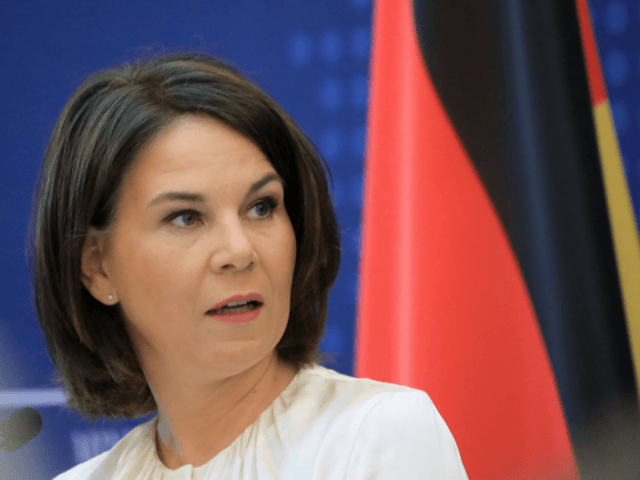The leftist coalition government of Germany has thrown its support behind the move for the European Union to impose an embargo on Russian oil, despite the country’s heavy reliance on energy imports from Moscow.
On Sunday, German Foreign Minister Annalena Baerbock revealed that Germany would back a ban on Russian oil from the bloc, however, she noted that such a move should be imposed gradually.
“And we are preparing this in such a way, that we could if necessary keep it up over the coming years,” Baerbock said per public broadcaster Deutsche Welle. She added that such sanctions on Russia should remain in place until Russia has fully withdrawn from Ukraine.
Economy and Climate Minister Robert Habeck said that it was “realistic” that Germany could completely end its reliance on Russian crude oil by the end of the summer.
Habeck claimed that Germany has so far cut its Russian energy imports down to 12 per cent for oil, 8 per cent for coal, and 35 per cent for natural gas.
“All these steps that we are taking require an enormous joint effort from all actors and they also mean costs that are felt by both the economy and consumers,” the climate minister said, adding that the economic pain is necessary “if we no longer want to be blackmailed by Russia.”
Habeck did admit that the soaring cost of living in Germany, which has seen the highest level of inflation in over 40 years, is likely to become a longstanding issue, saying “that is the bitter and the hard truth”.
Germany’s central bank has warned that should the country entirely cut off Russian energy it could severely increase inflation and damage economic growth, warning that the economic powerhouse of the European Union could experience a two per cent decline in GDP this year.
However, despite the move to cut off Russian oil, the government has not made any commitments to cutting off liquid natural gas from Moscow.
Despite gaining support from Germany, Brussels still faces hurdles in actually enacting an embargo on Russian oil, with Hungary threatening to veto such a measure.
“Since such decisions require unanimity, it makes no sense for the commission to propose sanctions affecting natural gas and crude oil that would restrict Hungarian procurements,” Hungarian Cabinet Minister Gergely Gulyas said on Sunday.
The bloc is reportedly considering giving a carveout to the sanctions for Hungary and Slovakia, both of which are deeply reliant on Russian oil. An EU official told Reuters that the two countries could receive “an exemption or a long transition period” in exchange for them not vetoing the embargo. Hungary receives around 96 per cent of its crude oil and oil product imports from Russia, while Slovakia purchases 58 per cent of its oil from Moscow.
It is unlikely that such a ban would be implemented in the short-term regardless, as any swift action would leave economies scrambling to make up the difference.
At present, the European Union pays Russia some €780 million ($850/£680 million) per day in exchange for oil and natural gas. Since the invasion of Ukraine began in February, the bloc has sent over €44 billion to Russia, accounting for 71 per cent of Russian energy exports. Germany, the largest single nation buyer or Russian gas and oil in the EU, has sent more that €9 billion since the start of the invasion.
Follow Kurt Zindulka on Twitter here @KurtZindulka

COMMENTS
Please let us know if you're having issues with commenting.